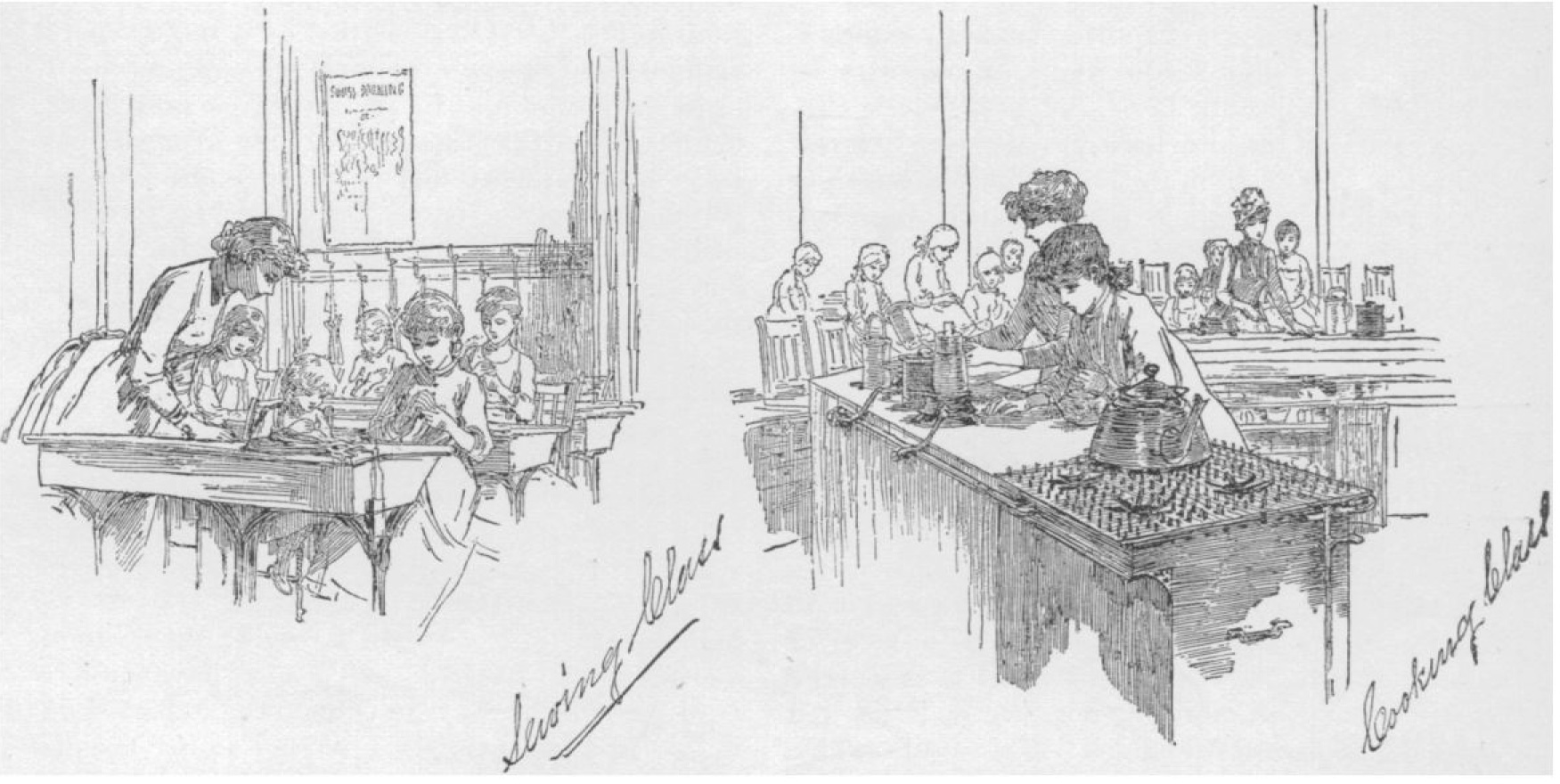Music
Sarah Sands Paddock
Social Reformer (1849–1919)

Ameliorating poverty.
Vocational training for women and children.
Women’s suffrage.
Temperance.
There were apparently few social movements (aimed at what a 19 th -century New Yorker might call “the betterment of society”) that Sarah Sands Paddock did not support and help to lead. And Fifth Avenue Presbyterian Church figured prominently in her formation.
Sarah was one of at least five children (four of them daughters) of Dr. David and Paulina Sands. Her father died when she was a girl. Her history with the church starts in 1869, when she became a member at age 20.
I am curious what brought her here. This was hardly her neighborhood church. Sarah and her family lived on East 116th Street, and she was the only member of her family who ever joined. Perhaps it was the appeal of the new pastor, the Rev. Dr. John Hall, whose pastorate began in 1867. In Dr. Hall, Sarah found a ready and influential partner in the social reform efforts that would shape her adult life.
From the mid- to late 1800s, Fifth Avenue was the leading church in New York City in establishing mission chapels to serve immigrant and working class communities. Sarah and her friend Mary Avery taught a popular Bible study at the Seventh Avenue Mission. In 1877 the two women started the Loan Relief Society, an initiative that provided small sums to immigrant and working class families at low rates of interest. Inspired by the success of similar programs in England, the Loan Relief Society at Fifth Avenue Presbyterian Church was the first of its kind in the United States.
The Society not only provided loans but also distributed Bible and religious tracts, clothing, food and medicines, arranged for in-home visits by doctors and missionary nurses, and helped to find permanent and temporary employment for women. Recipients paid back their loans when they could, often with in-kind services. In its first five years, the Society made loans totaling $500 and posted a net loss of just $4.
In 1882 Sarah collaborated with Dr. Hall to bring forward a proposal for a public, statewide Loan Relief Association. At a meeting of the State Charities Aid Association, Sarah read a paper on the loaf relief program and proposed that employment bureaus for the working classes be organized at every mission chapel in the city.
Her next major reform interest was in “industrial education,” 19th-century parlance for skilled vocational training. Sarah was among the founders of the Industrial Education Association in New York, which sought to introduce industrial and technical training in the public schools. With child labor still part of the American economy, industrial education was considered the best alternative to the exploitation of unskilled labor, and a means to prepare both boys and girls to become self-supporting citizens. Again, churches were the incubators for this initiative, with classes in dressmaking, carpentry, metal work and other trades offered at the Romeyn Chapel and other mission churches.
The Industrial Education Association also focused on the training of teachers in industry and technology. Within a few years of its founding, the organization evolved into what is now Teachers College at Columbia University.
In 1883 Sarah married John R. Paddock, a professor. Dr. Hall presided at the wedding ceremony in the still-brand-new Fifth Avenue sanctuary. The Paddocks would eventually move to East Orange, New Jersey, and raise three sons. But Sarah’s social reform efforts continued. She became a national authority in industrial education, served as president of the New Jersey Federation of Women’s Clubs, and advocated for the creation of women’s reformatories as an alternative to incarceration for first offenders and young girls.
In the early 1900s, as a leader in the Women’s Christian Temperance Union, her forceful speeches were reported in newspapers around the country. When she died at age 70 after a lingering illness, the New York Tribune called her “an authority on legislation pertaining to the liquor question, [who] worked for equal suffrage and child welfare.”
About the Writer
Kate Dunn is the Associate Pastor for Congregational Care and Outreach at Fifth Avenue Presbyterian Church. Like Sarah Paddock, her wide-ranging ministries address some of the city’s
most urgent needs, including homelessness and affordable housing, mental health, and providing for the homebound and elderly. She has served on the church staff since 2004.